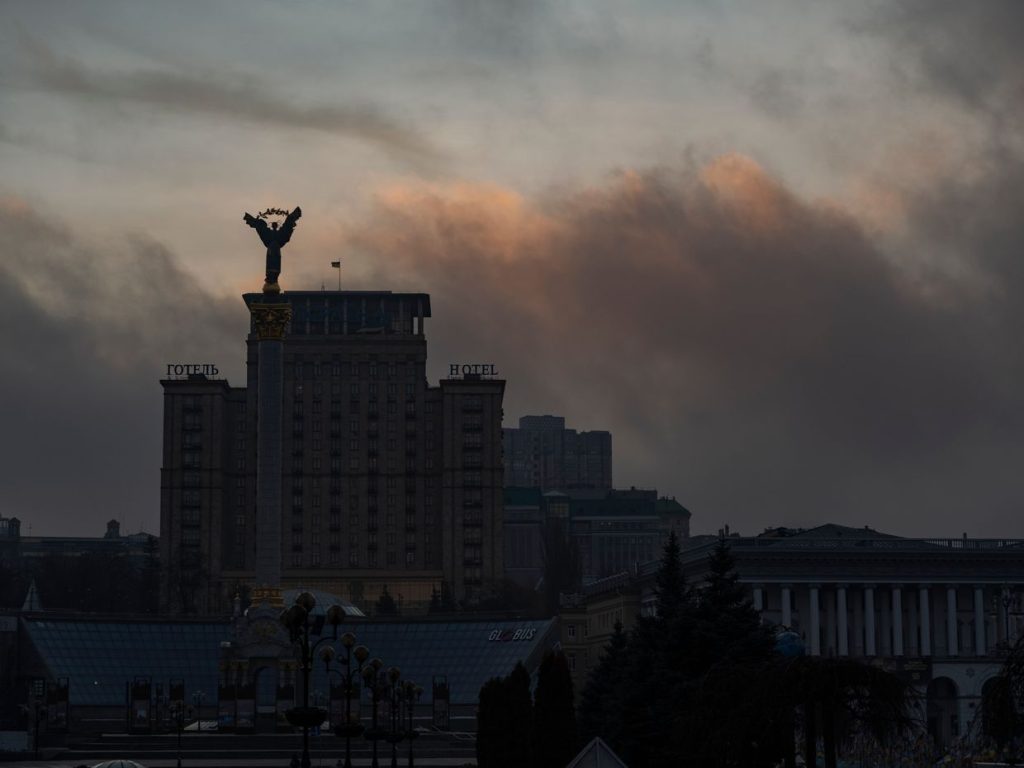Russia Launches Missile Attack on Kyiv
On the morning of February 12, Russia launched a missile attack on the Ukrainian capital, Kyiv, resulting in at least one fatality. The attack triggered fires across several districts, including Holosiivskyi, Podilskyi, Darnytskyi, Solomianskyi, and Svyatoshynskyi. Kyiv Mayor Vitali Klitschko reported a significant industrial fire in the Obolon district, with preliminary assessments indicating damage to nearby structures. The incident in the Podilskyi district claimed at least one life, though further details of the tragedy are still emerging. Emergency crews have been dispatched to various parts of the city to assess and mitigate the damages. Explosions were first reported around 4:30 a.m. local time, with several Kyiv Independent journalists on the ground confirming the event. Preliminary reports suggest that four Iskander ballistic missiles were launched toward the capital.
Ukrainian Air Force and Defense Response
Ukraine’s Air Force had previously warned of the potential for Russian missile attacks targeting various regions of the country. Mayor Klitschko confirmed that air defenses are actively engaged in Kyiv to counter the threat. In recent months, Russia has intensified its drone and missile attacks, targeting different regions of Ukraine. The sustained escalation has caused widespread destruction and loss of life, straining the resilience of Ukrainian defense forces and civilians alike. The ongoing military tensions and the relentless attacks highlight the critical need for robust and coordinated defense mechanisms to protect Ukraine’s cities and infrastructure.
Zelensky’s Remarks on Peace Talks
On February 11, President Volodymyr Zelensky made a significant statement regarding potential peace talks with Russia, suggesting that Ukraine might consider trading territory as part of a negotiated settlement. This statement marks a shift in Ukraine’s stance, reflecting the complexity and gravity of the ongoing conflict. Zelensky’s willingness to entertain such a proposition underscores the delicate balance between securing peace and preserving national sovereignty. The international community closely watches these developments, as any changes in the negotiation dynamics could have far-reaching implications for the region and beyond.
Ukraine’s Military Actions
In response to Russian aggression, Ukraine has taken active military measures. On February 11, Ukrainian forces confirmed striking Russia’s Saratov oil refinery, a strategic target that could impact Russia’s war capabilities. This action demonstrates Ukraine’s determination to retaliate and disrupt Russian military operations. The coordinated attack is a testament to the strategic thinking and operational capabilities of the Ukrainian military, which continues to adapt and respond to the evolving threat landscape. The international community has called for restraint and a de-escalation of hostilities, but the conflict remains at a critical juncture.
US Stance on Military Support
The United States has reaffirmed its commitment to supporting Ukraine but has ruled out sending troops to the conflict zone. Speaking on February 11, the Pentagon chief emphasized the US’s focus on providing military aid and intelligence support to Ukraine. This stance reflects the US’s strategic approach to the conflict, balancing the need to support Ukraine while avoiding direct military engagement. The decision to withhold troops is influenced by various geopolitical considerations, including the potential for broader conflict and the need to maintain international stability. The US continues to play a crucial role in supplying Ukraine with the necessary resources to defend itself against Russian aggression.
North Korea’s Alleged Assistance to Russia
Amid the ongoing conflict, North Korea is reported to have provided Russia with 200 long-range artillery guns. This development adds another layer of complexity to the conflict, as it highlights the international dimensions of the war. The involvement of North Korea, a country known for its isolation and military capabilities, could potentially alter the balance of power in the region. The international community is monitoring this development closely, as it could have significant implications for the trajectory of the conflict and the broader geopolitical landscape. The international response to this assistance will likely shape future diplomatic and strategic moves in the region.












